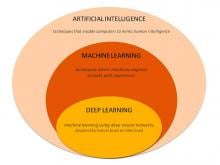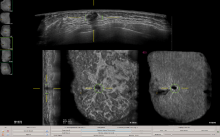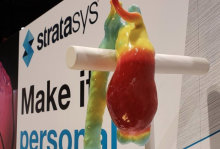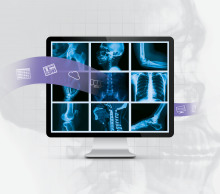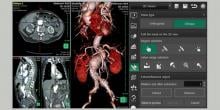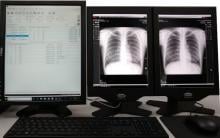This 360 degree view shows staff at the University of Colorado Heart and Vascular Center performing live transesophageal echo (TEE) ultrasound guidance during a transcatheter MitraClip repair procedure. The live color Doppler flow image on screen shows a severe mitral valve regurgitant jet prior to the MitraClip being positioned and deployed.
© Copyright Wainscot Media. All Rights Reserved.
Subscribe Now

